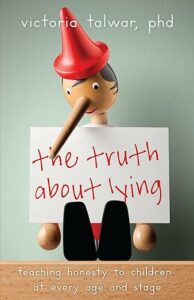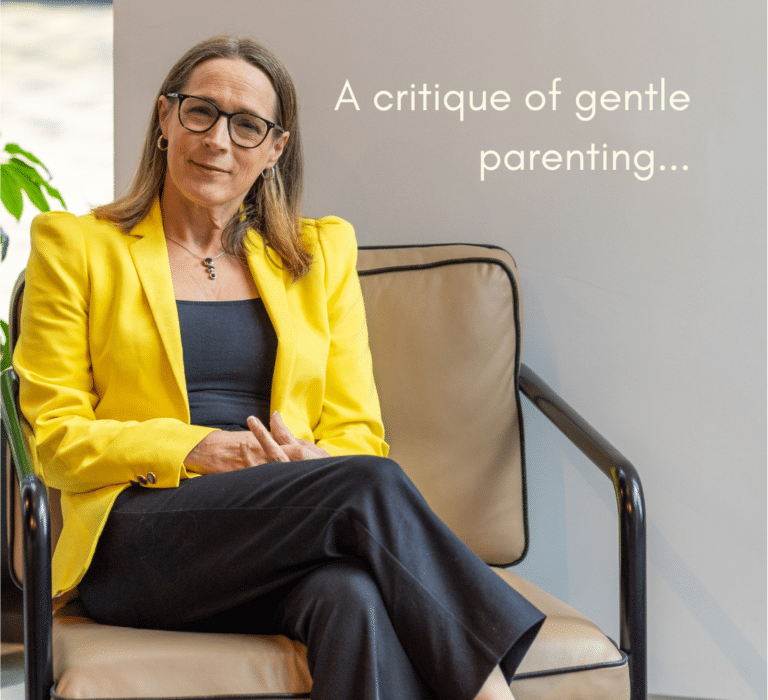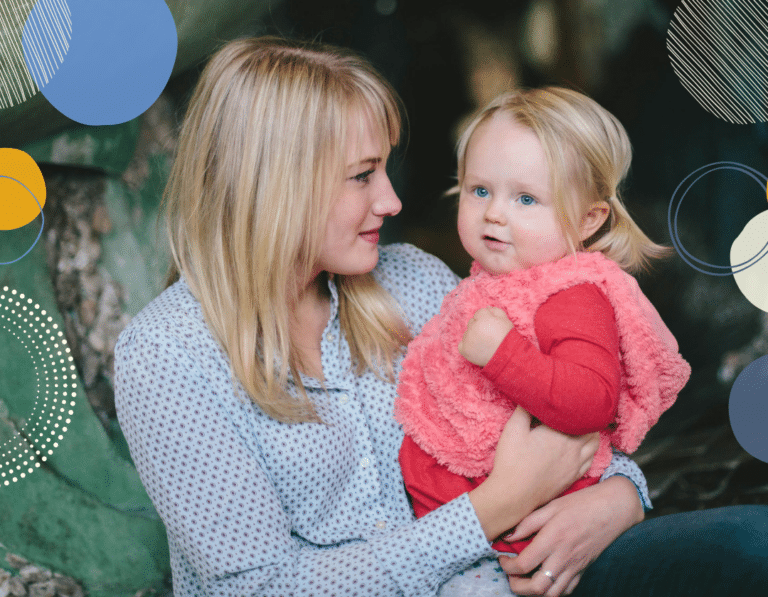How to respond when children tell lies
Guest post by Victoria Talwar author of The Truth about Lying: Teaching Honesty to Children at Every Age and Stage (contains affiliate links*).
“My child was standing before me and I could clearly see marker scribbles on the table, and she says to me “I didn’t do it!” I was so upset, she was lying to me!” This is a story that one mother recounted to me as she bemoaned her toddler’s lying behaviour. It is similar to many other stories I have heard parents say.
Feelings of annoyance or anger, surprise, shock or outrage wash over us when we find our young child lying to us. Frankly, these are normal, typical feelings when we discover someone has lied to us. When we discover our partner or a friend has lied to us, we can feel upset and betrayed. There is a reason why we often react negatively to being lied to, it is a serious breach in our social relationships. Universally, lying is generally considered a negative behaviour and we do not like to be lied to. We expect others to be honest with us and lying can feel like a violation of trust. So, it is very normal to feel upset when your child lies.
However, while we can feel these emotions and recognise these feelings in ourselves, it is better not to react to children’s lies emotionally. When we react emotionally, we may not effectively communicate the message about honesty that we want our child to hear and learn. In fact, the situation can even escalate if the child reacts emotionally in turn. Dealing with a lie in the moment of heightened feelings may make a parent act rashly or too harshly.
Of course, this is not always easy. There may be times when a parent needs to take a moment to step out of the situation to calm themselves. I have definitely done this myself a few times! However, once we recognise and deal with our emotions, we can move beyond to the important task of dealing with the lie, correcting the behaviour, and healing that bond.
We need to compose ourselves and deal with our children’s lies in a dispassionate, calm manner. Using clear and direct communication about expectations and rules is crucial to redirect the child’s attention to the desired behaviour. For instance, in response to a child hitting their sibling a parent can firmly say “In our house, the rule is no hitting. No one can hit for any reason. If you break that rule there will be a consequence.” The parent should try to say this in as neutral a tone as possible and may have to repeat it to make sure the child, especially a young child, understands the rules and expectations (see How to set ground rules).

If the lie is serious, parents may need to consult with each other or trusted adults before addressing it with the child. When discussing the lie, it’s important to avoid arguments and focus on addressing the behaviours observed.
Discipline should be given calmly and when the parent’s emotions are in check to effectively convey the message about honesty. Our research has shown that harsh and punitive reactions can lead to children becoming better liars as a strategy to avoid punishment. Overall, parents should aim to remain firm but mild in tone, reinforcing rules consistently and listening to the child’s perspective while maintaining a neutral demeanour.
Of course not all lies are serious or require a big response. When my middle-school aged son tells me he has brushed his teeth, I just blink melodramatically with an exaggerated look of dismay and point to the bathroom. It is my non-verbal way of saying “Nice try kiddo! Now just do it!”
Sometimes a lie is so preposterous or badly concealed that parents have to disguise their amusement. I remember once coming across the comical sight of a 4-year-old who denied eating a chocolate cookie while having big chocolate smears on his face and chocolate fingers. I had to suppress my smile to be duly serious in reprimanding him for eating a forbidden treat before his meal.
In fact, once we get past any initial reaction that we may feel, we can see this situation as an opportunity. At the least, it is an opportunity to reinforce messages about honesty and it may be opportunity to recognise other issues that we need to address with our children. However, it should not be the only time we talk about honesty. We need to talk about honesty not just at the moment when there is a transgression (see Children’s books on lying). As I describe in my book the Truth about Lying: Teaching Honesty to Children at Every Age and Stage, we should be discussing honesty and other values that we think are important already in our day to day lives. There are many ways we can have conversations about honesty in our day to day lives that can reinforce the importance of this value and provide examples of how to be honest. AND, very importantly, that you acknowledge and appreciate when children are truthful!
Whatever the feelings we have when we are confronted with our children’s lies, we need to keep them in check. As a parent, I often chant to myself the mantra “Stay calm, carry on” as I go about the day dealing with life’s little “dramas” especially in the face of the inevitable transgressions, rule-violations and occasional lies. When you encounter your children’s lies, keep that in mind so you can communicate clearly with a regular tone of voice, directing the child’s attention to the desired behaviour, reminding them of the rules, and focus on problem-solving to address the underlying reasons.
Finally, it is important to remember that while most children will tell the occasional fib, with some guidance from parents, very few grow up to be serious liars!

*This post contains affiliate links which means that if you click through from this post and buy a book, the Positive Parenting Project will receive a small commission. There is no additional charge to you. For more info, see Disclosure Notice.







Leave a Reply